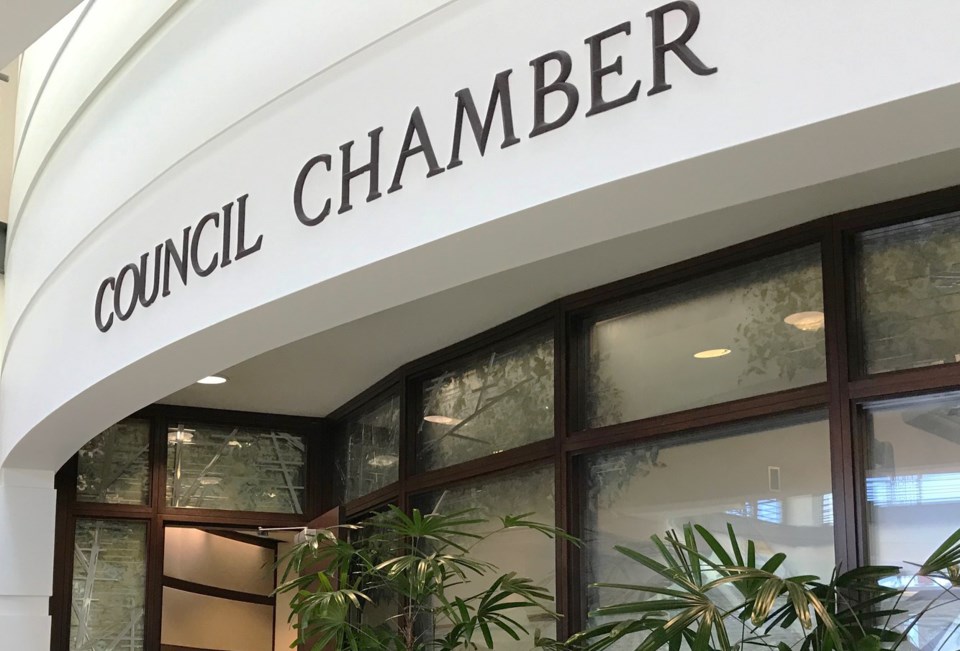Payroll costs have jumped by 12 percent in a year at Delta city hall, while staff expenses have gone up by almost a third.
According to the statement of financial information that are filed for each year, the city spent a total of $100,180,294 in salaries and pension contributions in 2023.
That compares to $89,237,993 spent in 2022.
That works out to the city spending 12 percent more on wages and salaries in 2023 compared to 2022.
When it comes to expenses that the city paid on behalf of council and its employees, there was a larger increase. In 2022, the city spent a total of $374,079.
But in 2023, that number had climbed to $495,162.
That works out to a 32 percent increase.
According to an email statement from the city, several factors account for the increases.
The increase in wages and salaries include retroactive payments from the 2022 collective agreements, along with rehiring of staff following the pandemic.
When the retroactive payments are not included, the actual increase in salaries is only six percent.
Mayor George Harvie said the city is also facing increases of four or five per cent for building maintenance and repairs, heating and lighting.
And construction costs for building repairs have gone up substantially, he said.
As well, increases in union contracts ranged from four to five percent.
As for the 32 percent increase in employee expenses, which include travel costs, tuition, membership, fees, etc., that is partly attributable to more training by the fire department, deferred training because of the pandemic, additional hiring and an increase in vehicle mileage rates, the city said in the statement.
Unlike expenses for directors who sit on the board of Metro Vancouver, councillors’ expenses in Delta are modest.
Coun. Dylan Kruger’s expenses were the highest on council in 2023, at $10,408.
Kruger though pointed out he thinks he was the only councillor who attended all three municipal conferences for the Lower Mainland Local Government Association, the Union of BC Municipalities, and the Federation of Canadian Municipalities and that’s why the expenses are what they are.
The city should have good representation at these events, he said.
He said councillors are expected to be at such events in order to advocate for council’s proposals for resolutions. Last year, the FCM conference was in Toronto, while UBCM was in Vancouver and LMLGA was in Harrison Hot Springs.
Most of council’s expenses are from these events, he added.
Kruger said that such meetings are different than international conferences.
“These are actual obligations that we have as councillors. We put resolutions forward on behalf of Delta, and we need to have folks at these policy-planning sessions to put the resolutions forward and debate them, otherwise they won’t get passed,” he said.
For instance, any resolution from Delta that’s intended to be proposed at UBCM, must first be debated and passed at the LMLGA.
And there never have been issues with expenses in Delta compared to Metro Vancouver, “where expenses have gotten completely out of control and we’ve got mayors flying off to Europe and Australia, southeast Asia. That’s not something that’s ever happened in Delta,” he said.
“This is at a totally different level in terms of just doing our role as local councillors,” he said. “We’re here to represent Delta taxpayers and there are certain expenses that have to be incurred in order to do that properly.”
When it comes to expenses for members of city council, politicians are entitled to reimbursement for all costs they incur going to an event or function on behalf of the city.
Bylaw No. 8241 defines what expenses can be reimbursed and includes travel and accommodation outside Metro Vancouver, airfare, in economy class, meals, taxi, car rental and conference and convention fees.
If an event lasts more than a day, councillors can claim a daily rate of $75 for meals or reimbursement of actual meal costs, providing receipts are included.
However, there’s no yearly limit on the total amount of expenses that any councillor can claim.
Harvie said he plans to raise that idea at council budget discussions this fall.
“I was hoping that we wouldn’t have to have a limit, that councillors would ensure their expenses are reasonable,” he said.
Councillors also get a monthly car allowance of $1,030, while the mayor has an option of using a car leased by the city, reimbursement on a per-km basis if he or she uses his own car for council business; or, a monthly vehicle allowance of $1,560.
Harvie had thousands in travel expenses last October when he was board chair of Metro Vancouver.
His trip to Brisbane, Australia, to attend the Asia Pacific Cities Summit and Mayors Forum cost Metro Vancouver taxpayers $17,336 for two, one-way trips, there and back.
By contrast, Anmore Mayor John McEwan’s flights cost $9,166 and Port Coquitlam Mayor Brad West’s flights cost $10,165.
And last June, three Metro Vancouver board members attended an international conference on drainage in the Netherlands.
West, McEwan and Richmond Mayor Malcolm Brodie had booked flights costing over $5,000 each, according to expense reports.
Those costs are not as high as Harvie’s $21,212 flight to Singapore last February, to attend the Canada-in-Asia Conference.
In May council removed Harvie as Delta’s representative on Metro Vancouver, saying it had lost confidence in his ability to represent Delta at the regional board.
- with files from Graeme Wood/Glacier Media



